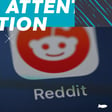
Niche Design: Differentiation, Language, and Building a Point of View
Welcome back to the Attention Podcast, where you'll learn how to gain and retain the attention of your buyers to grow an audience. I'm Dan Sanchez and today I talked to Nick Bennett who is the Founder at Harness & Hone about Niche Design.
Resources Mentioned:
Agency Niche Design Playbook »
Timestamps:
[00:00:05] Newsletter disputes niche design's effectiveness for differentiation.
[00:04:03] Niching down in marketing positioning is key.
[00:07:50] Specialized marketing for specific industries is essential.
[00:11:18] Summary: Transitioning marketing strategy for higher education.
[00:14:59] Conventional marketing is going in the wrong direction.
[00:19:38] The focus is on thinking, not doing. Many successful audiences are built by addressing problems and providing insights. Example of Chris Walker's approach.
[00:25:56] Customer problem resonance is key for success.
[00:28:16] Languaging and point of view create marketing.
[00:31:29] Effective communication is essential for problem-solving. Building a POV involves framing and naming the problem, explaining its impact, and providing language to communicate it. This allows individuals to advocate for solutions within their organizations. Marketing's role is to make the problem visible to everyone who experiences it.
[00:38:49] Building bridges to the future, providing solutions.
[00:41:07] "Niche category design for solopreneurs, consultants, entrepreneurs."
[00:46:45] Build audience by adding value, be unique.
[00:47:39] Deployment plan and tactics for connecting with audience.
[00:51:27] LinkedIn writer helps businesses with strategic thinking.
















